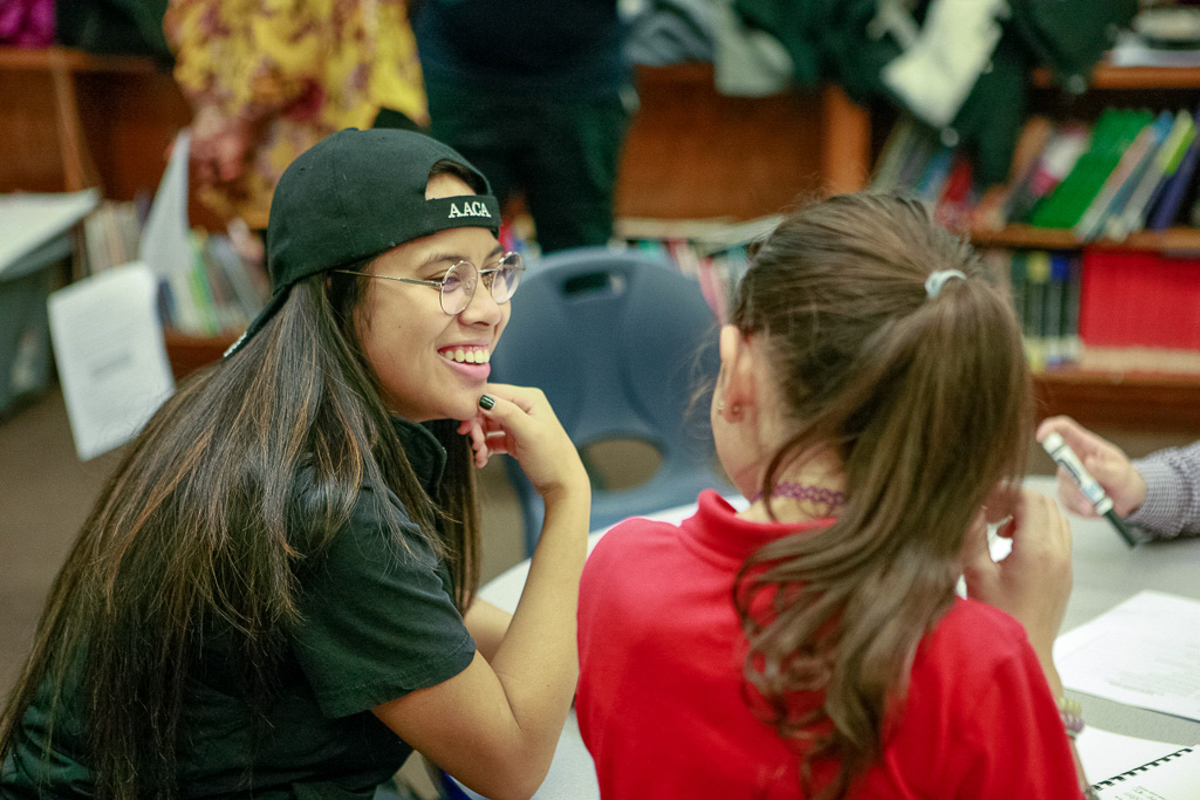 DePaul's Cities Project has been awarded a $3.8 million grant by the Institute of Education Sciences to expand the program into three additional universities and 12 Chicago public schools. (Photo courtesy of the Cities Project)
DePaul's Cities Project has been awarded a $3.8 million grant by the Institute of Education Sciences to expand the program into three additional universities and 12 Chicago public schools. (Photo courtesy of the Cities Project)
The Cities Project,
a nonprofit collaboration between Chicago universities and Chicago Public Schools, has been awarded a grant of nearly $3.8 million by the Institute of Education Sciences. The new funding will allow the project to expand into three additional universities and 12 Chicago public schools.
Founded in 1996 by DePaul faculty member Kathryn Grant and led by DePaul faculty, staff and students, the Cities Project currently works with CPS schools in the Englewood and Auburn Gresham neighborhoods. Through this grant, the program will reach neighborhoods located within a five-mile radius of new university partners Loyola, Northwestern and University of Illinois Chicago. Upon implementation, the Cities Project will use the funds for five years to work with nearly 720 students from 12 CPS schools.
"Our goal is to provide children living in under-resourced neighborhoods the opportunities they deserve to be successful and healthy. We want to help students with their academics, while concentrating heavily on mental and physical health," says Jocelyn Carter, a professor of clinical psychology in the College of Science and Health. Carter conducts data analysis for the Cities Project and will help incorporate the new CPS schools into the program.
Grant, also a professor of clinical psychology in the College of Science and Health, formed the Cities Project as she researched stressors in children and youth living in urban poverty. She found that traditional coping strategies don't work as well for children who are exposed to multiple stressors. Instead of focusing solely on what an individual child can do to cope with these stressors, the Cities Project helps the child build a supportive network and advocate for community changes.
The Cities Project is intentionally led by undergraduate and graduate students, says Carter.
"Psychological literature has found that the closer someone is to the mentee in age, the more likely the mentee is able to identify with that person. Especially for younger adolescents, it's important for them to be able to picture themselves in the shoes of their mentor," says Carter.
Carter also hopes that the mentors continue this work long after they graduate from DePaul or one of the other universities. "We want the Cities Project to be a transforming opportunity for the children in the communities, but also the student mentors," she says.
The organization is always looking for students, faculty and staff to become involved in research, communications and community engagement on behalf of the DePaul community. For more information about ways to support the program, visit the
Cities Project online or check out July's
Newsline story.
###
Media contact:
Russell Dorn
rdorn@depaul.edu